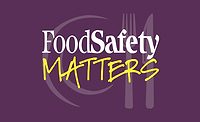Ep. 38. Maria Lapinski: Risk Communication and Social Media

Dr. Maria Lapinski is a joint professor in the Department of Communication and Michigan Ag-Bio Research at Michigan State University (MSU). She served as the associate dean for research for the College of Communication Arts and Sciences. In that role, she facilitated interdisciplinary research partnerships and identification of funding sources for faculty research.
Maria's research examines the impact of messages and socio-psychological factors on health and environmental risk behaviors with a focus on culturally-based differences and similarities. To this end, she has conducted collaborative research projects with her students and colleagues in a number of countries in Asia, the Pacific Rim, Central America, and Africa. Her work has been presented at national and international communication and public health conferences, and published in many journals including The Proceedings of the National Academy of Sciences, Health Communication, Communication Monographs, and others.
Dr. Lapinski received her doctorate in 2000 from MSU and earned her Master of Arts from the University of Hawaii, Manoa.
Subscribe on Apple Podcasts | Stitcher | Google Play | Android
In this episode of Food Safety Matters, we speak to Maria about:
- Risk communication courses offered at MSU
- What risk communication is, and how it requires an interdisciplinary approach
- How consumers view their responsibility when it comes to food risk
- How guidance and mandates about risk communication are not typically science-based
- General risk communication approaches
- The importance of social media monitoring for brands
- What food processors and other food safety professionals can do to help consumers minimize their risk
- The challenge of information overload when it comes to food recalls
- How algorithms shape what messages consumers see—and don't see
- How social media affects consumers' perception of risk and their behavioral decisions
- Seemingly minor factors that can affect a person's food safety behaviors and attitudes
- How cultural dynamics influence the way people respond to health issues and food safety
- What motivates people to research more information, particularly in the event of a recall
- The important work of extensions and land-grant institutions
- The positive impact of brands engaging with consumers
Related Content:
Best Practices in Crisis and Emergency Risk Communication
News Mentioned in This Episode:
Don't Eat Romaine Lettuce, Says CDC
46 Tons of Jennie-O Turkey Products Recalled in Relation to Ongoing Multistate Salmonella Outbreak
Supreme Court Won't Review Michael Parnell's Case Related to Deadly Outbreak
Keep Up with Food Safety Magazine
Follow Us on Twitter @FoodSafetyMag, and on Facebook
We Want to Hear From You!
Please share your comments, questions, and suggestions. Tell us about yourself - we'd love to hear about your food safety challenges and successes. We want to get to you know you! Here are a few ways to be in touch with us.
- Email us at podcast@food-safety.com
- Record a voice memo on your phone and email it to us at podcast@food-safety.com
- Leave us a voicemail at 747.231.6730
Looking for a reprint of this article?
From high-res PDFs to custom plaques, order your copy today!



